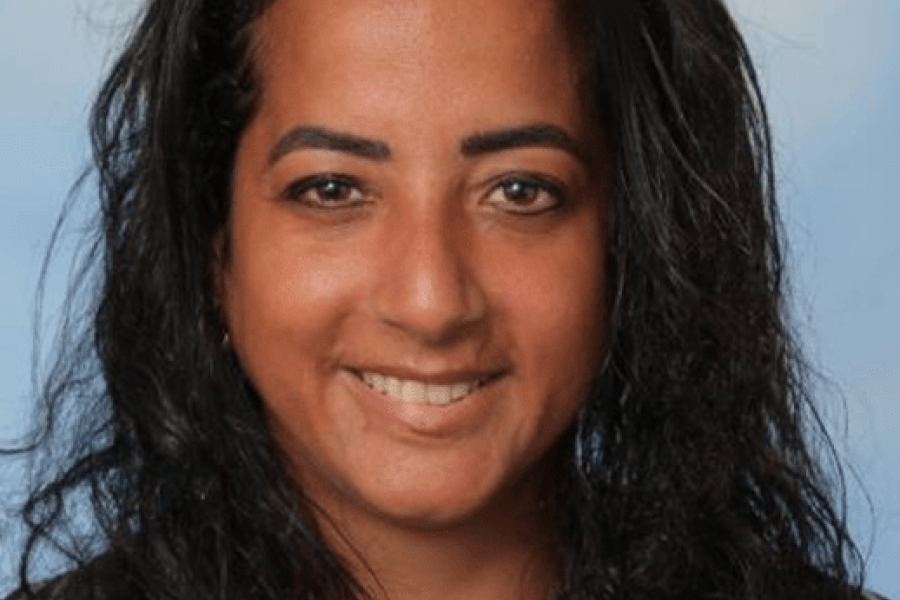Nihal studies how we can integrate chronobiology in secondary school education!

Nihal Fawzi is recent als PhD kandidaat onderzoeker begonnen aan de Hogeschool van Amsterdam aan haar project: BioClock & Educatie. Onder begeleiding van dr. Marco Kragten en dr. Bert Bredeweg gaat zij onderzoeken hoe het onderwerp van de biologische klok in het middelbare onderwijsprogramma in Nederland een plek kan krijgen. Ontzettend belangrijk want hoe meer mensen er over leren, des te beter!

Waar kom je vandaan en wat zijn je hobby’s?
Ik ben Nihal Fawzi en woon in Rotterdam. Ik kom oorspronkelijk uit Egypte net als mijn ouders maar ben samen met mijn zussen geboren in Nederland. Door Covid-19 konden we de afgelopen twee jaar helaas weinig naar familie in Egypte. Ik heb ook 5 jaar in Dubai gewoond en ben een wereldreiziger. Ik heb al veel landen bezocht en hou ervan om nieuwe landschappen en culturen te leren kennen. In mijn ogen kun je daardoor zoveel kennis opdoen die je niet leert door op een plek te blijven. Ik hou ook van buitenactiviteiten zoals wandelen, fietsen en mijn nieuwste hobby: natuurfotografie.
Wat is je achtergrond?
Ik ben een biologie, geografie en natuur-leven-technologie docent in het middelbare onderwijs. Ik heb ongeveer 16 jaar gewerkt en was de laatste twee jaar ook de afdelingsleider van het biologie onderwijs. Ik heb Biologie en Geografie gestudeerd en later heb ik voor beide vakken ook een tweetalige specialisatie gedaan. Het meest recent heb ik ook een cursus in Big History gedaan, een nieuw vak in het middelbare onderwijs.
Waar gaat je BioClock project over?
Ik ga een educatief programma voor het middelbare onderwijs ontwikkelen en evalueren. Het doel van dit nieuwe programma is dat leerlingen kennis ontwikkelen over dagelijks gedrag van organismen, de impact op de biologische klok en ook de consequenties voor gezondheid. We blijven hiervoor dichtbij het huidige biologie curriculum zoals dat wordt aangeboden door de overheid. Daarom zullen we thema’s van de biologische klok combineren met het centrale zenuwstelsel, ecologie en het begrijpen van biologische ritmes in verschillende organismen zoals zoogdieren, planten en insecten. Om te beginnen gaan we ons focussen op systeem denken en conceptueel modelleren van de biologische klok.
Wanneer hoorde je voor het eerst over de biologische klok?
Ik heb de afgelopen jaren veel gelezen over het onderwerp maar stond er niet bij stil dat de biologische klok bij zoveel onderwerpen in gezondheid, gedrag en omgeving betrokken was. In het laatste jaar ben me verder gaan verdiepen in het onderwerp omdat er studenten waren die het onderwerp kozen voor hun profielwerkstuk. Ik denk dat er nog heel veel te leren is over de circadiane klok en ritmes en daarom vond ik deze PhD positie zo interessant.
Wat zouden mensen over jou moeten weten?
Ik sta bekend als actief en avontuurlijk persoon, ik probeer graag nieuwe dingen uit en ik hou van menselijke interactie. Het ontmoeten van nieuwe mensen vind ik heel leuk en lachen is een belangrijke factor in mijn leven. Ik post al mijn natuurfoto’s op outdoors_with_nihal, en ja ik hou vooral van dieren!
Contact met Nihal kan via: n.fawzi@hva.nl

The BioClock Consortium is funded by the NWA-ORC programme of the Dutch Research Council (NWO; project number 1292.19.077).